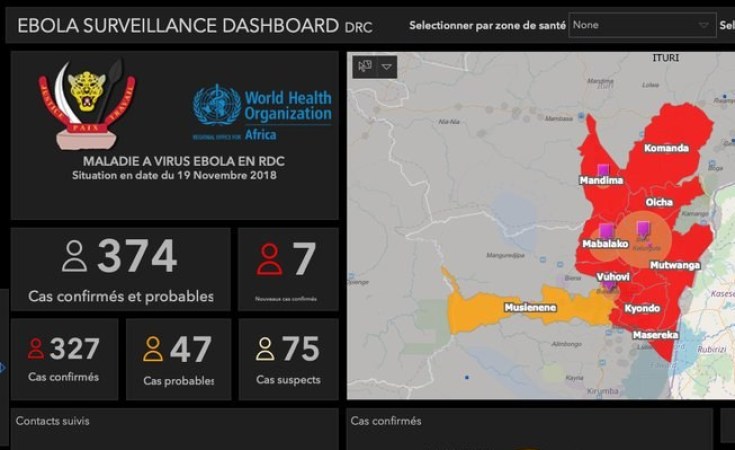Cape Town — More than 200 people have died of Ebola in the Democratic Republic of Congo, as fears grow that the latest outbreak is being worsened by the increasing fighting in the eastern region of the country. During the 2014 outbreak, the international health community was criticised for being slow to respond and more than 11 000 people died - will this outbreak be a repeat of that tragedy?
The warning signs are there...
The international response on the ground is falling far short of what is required, says J. Stephen Morrison and Judd Devermont from the Center for Strategic & International Studies. One of the reasons, it might be argued, is the the United States decision to keep its civilian Ebola experts at a distance from the conflict zone. These experts played a major role in the previous outbreak. The August outbreak is proving challenging for experts as 50% of the infections are in Beni, where the World Health Organization has warned conflict is heading towards the "Red Zone".
Health workers are sometimes caught in the crossfire between rebels and government soldiers - and it may justify Washington's cautious attitude. Moreover, President Donald Trump had at various times objected to U.S. engagement in West Africa, especially during the 2014 Ebola outbreak.
Four US personnel members were on the ground in Beni but were called back to Goma just two days after they were deployed when rebels attacked a DR Congo military base located on a road traveled by U.S. troops. They have not been cleared to go back since then. This is contrary to the West African outbreak in 2014-2015 were Ebola was fought at its source; seasoned Centers for Disease Control and Prevention (CDC) personnel were deployed; and over 1 400 volunteers rotated at treatment centres, wrote J. Stephen Morrison and Judd Devermont in their brief, North Kivu's Ebola Outbreak at Day 90: What Is to Be Done?
"At present, the United States provides technical support to the health ministry in Kinshasa, while providing similar assistance to Rwanda, South Sudan, and Uganda for surveillance, infection prevention and control, border screening, and emergency management. CDC also provides staff to support WHO in Geneva and USAID has hired three contractors (two health experts and a logistician) to support WHO in the outbreak zone, in non-supervisory roles," Morrison and Devermont say in their Ebola brief published on November 1, 2018.
And CDC Director Robert Redfield thinks the absence of Center for Disease Control (CDC) experts on the ground is "undermining" the international response.
The Trump administration... at the same time, ... faces the risk that if it chooses to stay on the sidelines, and the outbreak mushrooms and globalizes, the blame will be laid at least in part at Washington's door ... The challenges now appear bigger than WHO, the country's Ministry of Health, and other partners can handle, according to the Center for Strategic and International Studies brief.
J. Stephen Morrison and Judd Devermont write: "The most urgently needed step is to focus high-level political attention on generating an updated game plan to improve security, strengthen local response capacities, and build trust and engagement with communities". Part of that effort has to be getting a more granular and real-time estimation of the security situation. Part also has to argue, forcefully and overtly, that there is simply no choice but to pursue an aggressive strategy to mitigate the security threats in eastern Congo: given the public health needs there, given how dangerous the outbreak is becoming, and given how much worse it could suddenly become."
But what level of involvement should the United States commit to? "A few discrete steps ..." suggest Morrison and Devermont.
1. Issue a public declaration affirming that a full U.S. commitment to the outbreak response is squarely in the U.S. national interests
2. Define quickly how many CDC and USAID experts are needed in the epicenter, and how they might be most effectively and safely deployed
3. Quickly assess how best to ensure the security of a small US contingent. The latter might involve embedding U.S. security personnel in MONUSCO.


